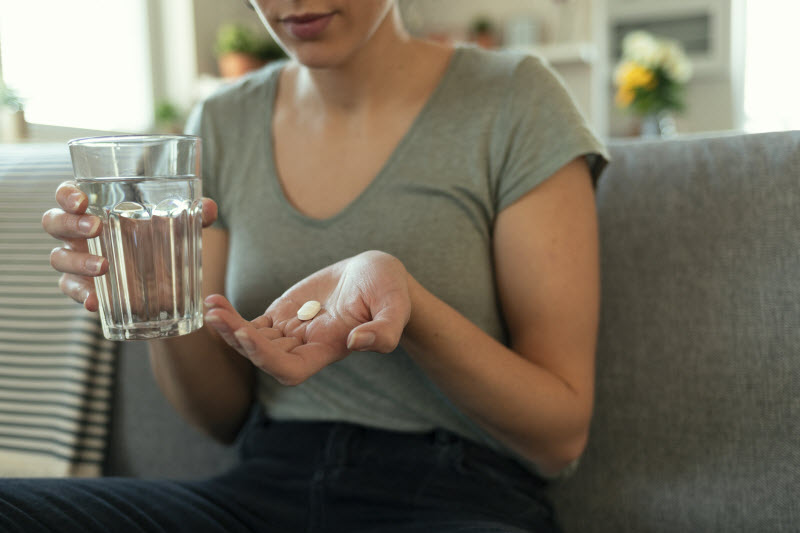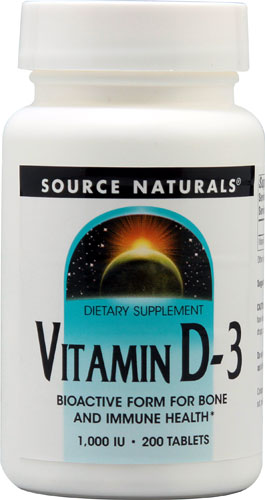[vc_row][vc_column][vc_column_text]As the winter days grow shorter and the sun’s presence fades in many places, concerns about getting enough vitamin D grow.
This important nutrient is essential to keeping your bones strong. Exposure to sunlight helps the body to naturally make vitamin D. So, less time in the sun raises the possibility of
vitamin D deficiency.

“The biggest downside of having low vitamin D levels is that it increases the risk of osteoporosis, because vitamin D helps us absorb the calcium in our diets,” says Carrie Dennett, a Pacific Northwest-based registered dietitian nutritionist and owner of
Nutrition By Carrie.
Adequate levels of vitamin D also help prevent rickets, a softening of the bones that sometimes occurs in children.
Vitamin D impacts muscle health, and a mild deficiency can result in general muscle achiness, Dennett says. “More severe deficiency can contribute to muscle pain and fatigue,” she adds.
How much vitamin D do you need?
The amount of vitamin D you require depends on your age. Vitamin D intake is measured in international units. One international unit is the equivalent of 0.025 micrograms.
According to the
National Institutes of Health, recommended daily amounts of vitamin D are:
- Birth to 12 months: 400 IU
- Children 1-13 years: 600 IU
- Teens 14-18 years: 600 IU
- Adults 19-70 years: 600 IU
- Adults 71 years and older: 800 IU
- Pregnant and breastfeeding women: 600 IU
Keeping your bones and muscles healthy is the biggest benefit of getting enough vitamin D, Dennett says. “Supporting our immune systems is another benefit,” she adds.
Although vitamin D is not a "magic bullet" for preventing illness, it can help, Dennett says.
In fact, earlier this year, Dr. Anthony Fauci – director of the National Institute of Allergy and Infectious Diseases – made headlines
when he said he takes vitamin D supplements with the goal of boosting his body’s ability to fight infection.
“As we go into the winter months, it's a good idea to make sure we're taking care of our vitamin D needs,” Dennett says.
The best ways to get vitamin D
There are three primary ways to get vitamin D:
- Through your skin when exposed to sunlight
- From your diet
- By taking vitamin D supplements
If you spend a lot of time in the sun, chances are good that you are getting adequate levels of vitamin D. However, your risk of skin cancer increases the longer you are exposed to the sun, leading some people to hide from the sun.
In addition, during winter, exposure to sunlight often falls dramatically as people spend longer periods indoors.
That leaves diet and supplements as the main source of vitamin D intake for some people. Dennett says she generally recommends people get nutrients from foods whenever possible, because foods offer an array of micronutrients (vitamins, minerals and phytochemicals) and macronutrients (carbs, protein and fat), as well as fiber.
However, getting vitamin D from foods can be challenging. “There aren't many foods that are rich sources of vitamin D,” Dennett says.
The best food sources include:
Because of the difficulty of getting vitamin D from foods, Dennett says vitamin D is one nutrient “I unhesitatingly recommend in supplement form.”
However, check with your doctor before taking
vitamin D supplements. Getting too much vitamin D from supplements can lead to hypercalcemia, where too much calcium builds up in the blood. This can leave you vulnerable to deposits in the arteries or soft tissues.
Excessive levels of vitamin D supplements also may increase the risk of kidney stones in women, according to Harvard Medical School.
[/vc_column_text][/vc_column][/vc_row][vc_row][vc_column][vc_text_separator title="Featured Products" border_width="2"][vc_row_inner equal_height="yes" content_placement="middle" gap="35"][vc_column_inner width="1/3"][vc_single_image image="156469" img_size="full" alignment="center" onclick="custom_link" img_link_target="_blank" css=".vc_custom_1638927752488{padding-right: 7% !important;padding-left: 7% !important;}" link="https://www.vitacost.com/vitacost-vitamin-d3-mini-gels"][/vc_column_inner][vc_column_inner width="1/3"][vc_single_image image="156470" img_size="full" alignment="center" onclick="custom_link" img_link_target="_blank" css=".vc_custom_1638927819352{padding-right: 7% !important;padding-left: 7% !important;}" link="https://www.vitacost.com/country-life-vitamin-d3-spray-vanilla-bean"][/vc_column_inner][vc_column_inner width="1/3"][vc_single_image image="156471" img_size="full" alignment="center" onclick="custom_link" img_link_target="_blank" css=".vc_custom_1638927849545{padding-right: 7% !important;padding-left: 7% !important;}" link="https://www.vitacost.com/naturelo-vitamin-d3-gummies"][/vc_column_inner][/vc_row_inner][/vc_column][/vc_row]
 “The biggest downside of having low vitamin D levels is that it increases the risk of osteoporosis, because vitamin D helps us absorb the calcium in our diets,” says Carrie Dennett, a Pacific Northwest-based registered dietitian nutritionist and owner of Nutrition By Carrie.
Adequate levels of vitamin D also help prevent rickets, a softening of the bones that sometimes occurs in children.
Vitamin D impacts muscle health, and a mild deficiency can result in general muscle achiness, Dennett says. “More severe deficiency can contribute to muscle pain and fatigue,” she adds.
“The biggest downside of having low vitamin D levels is that it increases the risk of osteoporosis, because vitamin D helps us absorb the calcium in our diets,” says Carrie Dennett, a Pacific Northwest-based registered dietitian nutritionist and owner of Nutrition By Carrie.
Adequate levels of vitamin D also help prevent rickets, a softening of the bones that sometimes occurs in children.
Vitamin D impacts muscle health, and a mild deficiency can result in general muscle achiness, Dennett says. “More severe deficiency can contribute to muscle pain and fatigue,” she adds.



